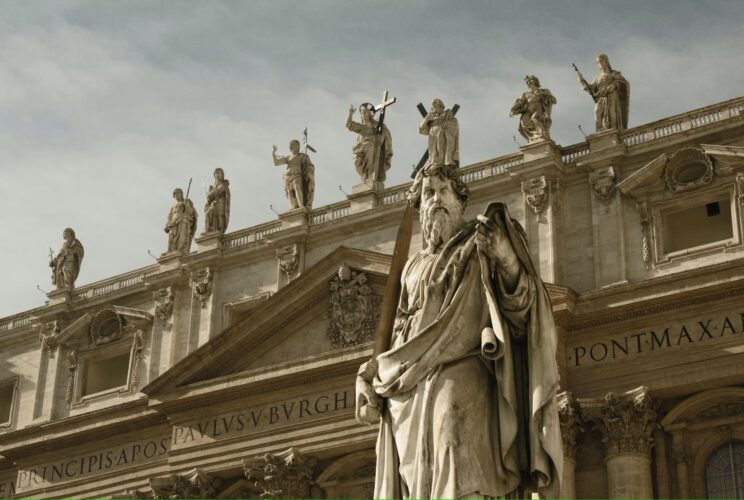This is just a little piece of reflection on what is civilization. For some civilization refers
to societies with civilized behavior. This would be connected to the word civil and hence
treating people in civil or respectful ways. However, many writers treat the meaning of
civilizations as societies that are well organized, powerful, or produce sophisticated art,
or sophisticated technology. Civilizations are extensive in territory, like Rome,
European civilization, or Chinese civilization in its classic period with its amazing art
forms and incredible bureaucracy with civil service exams and stratified class
distinctions. Some point to inventions and advances.
The Bible does not divide people based on the idea of whether or not they are civilized
in the above terms. Rather, the center of Biblical evaluation is whether a society is just
and good. The Greeks gave us the idea of the transcendentals, truth, beauty, and
goodness. The Bible indeed reflects these transcendentals and gives them definitions.
Let’s drop the term civilization and replace it with what is a good society. A great and
good society attains a high level whereby its people pursue truth, goodness, and beauty
as defined by Scripture and its collimation in the life and teaching of Yeshua.
Such a society first of all promotes the treating of all people with love, dignity, and
justice based on the idea that they are all equally created in the image of God. This
means that love and kindness are established values. Justice is pursued as an order of
righteousness where every person can attain his or her God-intended destiny. This
destiny begins with loving and knowing God. Every person has a God-intended good
destiny to exercise gifts and talents as God distributes and to exercise such gifts for the
benefit of all. Love is the passionate identification with others that seeks their good
guided by God’s Law. Good is defined by the destiny fulfillment of each individual. It is
not equality of wealth but sufficient wealth to fulfill one’s destiny. Of course, it includes
food, shelter, education, and provision for families and communities.
Various cultures, even outside of Biblical influence, can be evaluated by how much they
attain to these norms. Romans 1 and 2 teach that people have something of the law of
God in them and are better or worse to the extent that they live out the law that is more
or less perceived intuitively or by experience. H. Richard Niebuhr in his Christ and
Culture makes Christ the measure for evaluating what is good in various cultures and
what is bad and to be discarded and what can be transformed through Christ.
In the light of Biblical norms for evaluating cultures, we realize that even the history of
the “Christian West” shows an incredible failure to live out biblical norms but that
selfishness, rationalizations for power, and greed, too often were dominant. Such evil
has been defended in the name of Christianity. Dr. Peter Hocken rightly uses the idea
of “The Glory and the Shame” as the title of his book showing the great things and the
shameful things in Church history. Human beings terribly mess it up in their sin. We see
this in the history of the United States with wonderful ideals in the Declaration and the
Constitution but a terrible history in dealing with native Americans, black slavery, and
then the abandonment of the equality ideals that were to be enforced after the Civil War.
Germany considered herself the height of civilization in her philosophy, music, art, and
scientific progress. They then gave rise to Nazism and the Holocaust. So much for
Civilization!
When we read the Torah, then the Gospels and Epistles we see an orientation toward
life, the treatment of people, and love that the world and even the Church in history was
challenged to really understand and live out. This is the center of righteousness and
real civilization. It is not whether urban or rural or highly educated or simple. It is rather
that the center is how biblical norms are perceived and lived out.
